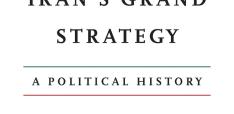Book Review: Will the Middle East Implode?
Will the Middle East Implode? by Mohammed Ayoob. Cambridge: Polity 2014. 120 pp, £35 hardcover 978-0-7456-7924-2, £9.99 paperback 978-0-7456-7925-9, £6.99 e-book 978-0-7456-8030-9
Mohammed Ayoob has written a coherent overview of contemporary unrest in the Middle East that provides a cogent answer to the question, ‘How did we get here?’ Well-written and engaging, the volume distils a sprawling, confusing subject down into a manageable format that students, journalists and the general public will find immensely useful. In this sense, the book also performs a very important function. Through six short, easily digestible chapters (using large print on small pages), the book gently reminds observers and commentators to avoid some stubborn myths about the region, especially when dealing with the nature(s) of political Islam, the problem of sectarianism and the reasoning behind Iran’s enrichment of uranium.
Although Middle East enthusiasts will prefer to absorb the long version in Ayoob’s 2008 book, The Many Faces of Political Islam, his latest work provides an outline of ‘The Islamist Challenge’ in Chapter 2. This section stresses that “Islamism and Islamists are broad umbrella terms that hide as much as they reveal” and notes the broad spectrum of differing Islamist parties and movements, from Egypt’s Muslim Brotherhood to the ruling Justice and Development Party (AKP) in Turkey. By discussing these movements in terms of their local aims and objectives, Ayoob gives the reader a far more flexible, pragmatic and less militant characterisation of contemporary Islamists than we tend to find in the Western media. The book was, of course, written before the rise of the Islamic State in Syria and Iraq, but the point of Ayoob’s section on Islamism is to emphasize that it is not monolithic and far from ubiquitously threatening.
This book also answers shallow assertions of endemic sectarianism in the Middle East. In Chapter 4, ‘Regional and Global Rivalries’, the author expertly describes how external meddling and competition have been ethnically and religiously divisive across the region despite being fuelled by primarily strategic goals. This is most evident in Syria, where Iran seeks to bolster its only consistent ally, whereas Saudi Arabia, aided by Qatar et al, attempt to diminish Tehran via Damascus. There is also Western intervention to consider. The NATO strikes that began in Libya on a humanitarian premise soon turned into regime change, making Russia in particular wary of similar-sounding missions, and long-term effects associated with the United States’ War on Terror are still unfolding.
In a further retort to dominant media narratives, Will the Middle East Implode? addresses common misunderstandings about Iran and its nuclear program. In contrast to the ‘axis of evil’ image, Ayoob quotes former Israeli Prime Minister Ehud Barak discussing the strategic reasons behind Tehran’s nuclear endeavour. The Islamic Republic finds itself, Barak admitted, situated near the nuclear powers of Russia, India and Pakistan, responding in many ways to the undeclared Israeli nuclear arsenal, reeling from past enmity with Iraq and engaging in a regional face-off with Saudi Arabia. In particular, Ayoob mentions how US posturing on the military option even during ongoing P5+1 negotiations has been counter-productive. However, by suggesting a seemingly simple solution to the complex problem of nuclear proliferation, this section loses some authority.
Ayoob posits that the way forward is to establish a Middle East nuclear weapons-free zone (MENWFZ) that would bind both Israel and Iran, thereby neutralising at least one of each states’ interest in possessing a nuclear capability. Although the author insists that this is not a Utopian idea, and cites Israeli opinions polls favourable to such a scheme by way of example, it lets down what is otherwise a coherent, realistic assessment of Middle East politics. The suggestion for a MENWFZ comes seemingly out of the blue and the preceding chapters have not been written in a way that supports this policy position. If this argument was a key tenet of the book, at least one chapter would have focused on the role of Israeli, particularly settler and right-wing politics, and how such opinion polls change dramatically in the context of perceived threats to Israel, including Iran’s sponsorship of Hamas and Hezbollah. As this is a short volume, however, Ayoob has not benefitted from the space necessary to develop this policy position fully.
On a similar note, Will the Middle East Implode? suffers from an inevitable problem when writing about the contemporary Middle East; it has, to a greater or lesser degree, been overtaken by events. Ayoob provides a beautifully crafted overview of competing interests in the region and highlights the complexities often overlooked by non-specialists, but elements of this 2014 book feel somewhat dated already.
The author finished writing, for example, before the breakdown of John Kerry’s brokered talks between Israel and the PLO in April 2014, and, therefore, before the Gaza war later that summer. What this means is that Ayoob’s chapter on ‘Deadlock Over Palestine’ implies that the issue of Israeli occupation is more of a regional powder keg than it is actually proving to be at present. Increased tensions in Jerusalem and some isolated attacks have many pundits positing a Third Intifada, but the rest of the Middle East (other than Jordan as custodian of the Old City’s Muslim holy places) seems entirely pre-occupied due to the emergence of yet another player since this book went to print.
After the Islamic State made headlines by beheading Western journalists, the United States, aided by a thin coalition, has been orchestrating airstrikes in both Syria and Iraq as though Bashar al-Assad does not exist as either a target or ally. This action has clearly not sparked the larger conflagration that an earlier intervention to address the use of chemical weapons in Syria might have created. Kurdish and IS fighters have clashed in Iraq, exhuming the thorny issue of Kurdish nationalism in Turkey, and so the regional threat posed by Da’ish has dampened some fuses while exposing others. These issues are very much of the moment (and may well have been supplanted by new concerns by the time this review is published), so it is important to recognise that any book that deals with headline Middle East politics would encounter the same difficulties.
Overall, Will the Middle East Implode? is an excellent, lucid rundown of the driving forces behind Middle East instability. It is a brilliant reminder to avoid the pitfalls of generalising, thinking only in terms of media hype and over-estimating potential threats due to a misunderstanding of the delicate complexities involved in Middle East politics. The book should be essential introductory reading for politics and international relations students and is interesting and accessible enough for the general reader. Although the Islamic State is busy re-writing the century-old Sykes-Picot Agreement, this book provides the principles any analyst or observer needs, to understand how regional actors are responding to that challenge. In any case, the volume is enjoyable, easy to read and well worth the day or two it takes to complete.
Dr Carly Beckerman-Boys is Lecturer in the International Relations of the Middle East at the School of Government and International Affairs, Durham University.


